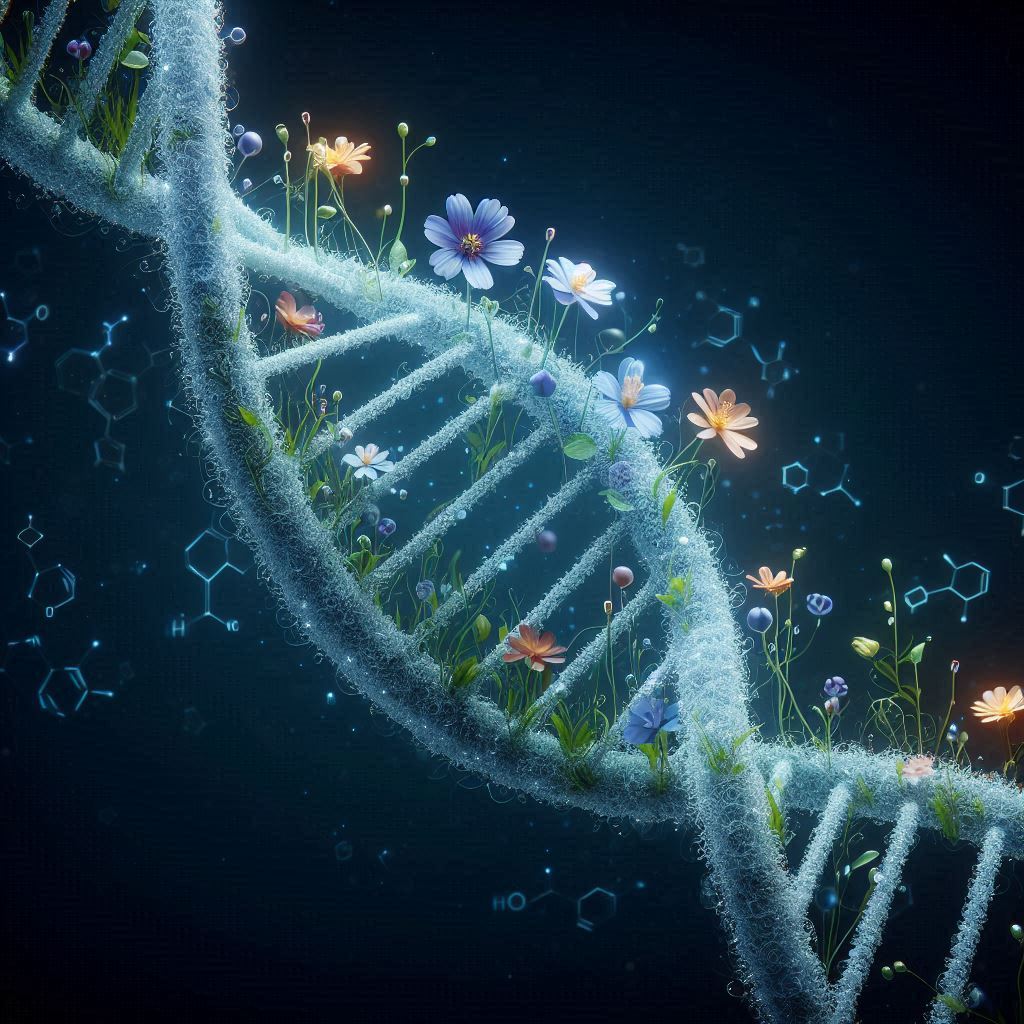Early menstruation, or menarche, is a critical developmental milestone for adolescent girls, traditionally occurring between the ages of 11 and 14. However, recent data indicates a concerning trend towards earlier onset, with some girls starting their menstrual cycles as young as 8 or 9 years old. This shift is linked to a variety of factors, including lifestyle choices, poor diet, lack of physical activity, stress, and environmental pollution. Understanding these influences is essential for addressing their impacts on reproductive health and the broader implications for future generations.

Factors Contributing to Early Menstruation
1. Lifestyle Choices
Modern lifestyle choices significantly impact the timing of menarche. Stress, both physical and psychological, has been shown to affect hormonal regulation. A study published in The Journal of Clinical Endocrinology & Metabolism revealed that chronic stress during adolescence can lead to hormonal imbalances, potentially resulting in earlier menarche. The modern lifestyle, characterized by academic pressures, social media influence, and heightened expectations, contributes to elevated stress levels among teenagers. This stress can disrupt the hypothalamic-pituitary-ovarian axis, accelerating the onset of menstruation.
2. Poor Diet
Dietary habits play a crucial role in the timing of menarche. Research in the American Journal of Clinical Nutrition indicates that high consumption of processed foods and sugary snacks correlates with earlier menarche. A diet lacking in essential nutrients, such as iron, calcium, and vitamins, can interfere with normal hormonal development. Additionally, the rising prevalence of obesity, driven by poor diet, is linked to earlier onset of menstruation. Excess body fat increases estrogen levels, which can lead to the early activation of the menstrual cycle.
3. Lack of Physical Activity
Sedentary behavior is another factor contributing to early menarche. The rise in screen time and reduced physical activity among teenagers has been associated with earlier menstruation. A study in The International Journal of Obesity highlighted that lower levels of physical activity and higher body fat percentages are associated with an earlier onset of menarche. Regular physical activity helps regulate hormones and maintain a healthy weight, both of which are crucial for normal menstrual function.
4. Stress
The impact of stress on menstruation is profound. Psychological stress, including academic pressure, family issues, and social challenges, can disrupt the hormonal balance necessary for normal menstrual function. Research published in Stress: The International Journal on the Biology of Stress shows that chronic stress can lead to changes in the menstrual cycle, including earlier onset of menarche. This disruption can result in irregular cycles and other reproductive health issues.
5. Polluted Environment
Environmental pollution is an emerging concern in reproductive health. Exposure to endocrine-disrupting chemicals (EDCs) such as phthalates, bisphenol A (BPA), and pesticides can interfere with hormonal regulation. A study in Environmental Health Perspectives found that these pollutants, commonly found in plastics and personal care products, are linked to earlier menarche. EDCs can mimic or block hormones, leading to alterations in reproductive development.
Consequences for Fertility and Life Cycle
1. Increased Risk of Reproductive Disorders
Early menstruation is associated with an increased risk of reproductive disorders. Research published in The Lancet Diabetes & Endocrinology suggests that girls who experience early menarche are more likely to develop conditions such as polycystic ovary syndrome (PCOS), endometriosis, and infertility. PCOS, in particular, is linked to hormonal imbalances and can affect a woman’s ability to conceive. Early onset of menstruation may disrupt the normal development of the reproductive system, increasing the risk of these conditions.
2. Psychological and Social Implications
The psychological and social impacts of early menstruation are significant. Studies in Developmental Psychology have shown that girls who menstruate early may experience higher levels of anxiety, depression, and lower self-esteem. The physical and emotional changes associated with early puberty can be overwhelming, affecting social interactions and academic performance. Early menarche may also lead to increased vulnerability to risky behaviors and premature sexual activity.
3. Long-Term Health Impacts
The long-term health implications of early menstruation extend beyond reproductive health. A study in The British Medical Journal found correlations between early menarche and an increased risk of cardiovascular disease and certain cancers later in life. The cumulative effects of hormonal imbalances and lifestyle factors can predispose individuals to these chronic conditions. Early menstruation may also impact bone health, as estrogen plays a role in bone density, and disruptions in menstrual cycles can affect overall bone strength.
Solutions for Maintaining a Healthy Female Cycle
1. Balanced Diet
Adopting a balanced diet rich in fruits, vegetables, whole grains, and lean proteins can support hormonal health and potentially delay the onset of menstruation. Limiting the intake of processed foods and sugary snacks is crucial. Ensuring adequate intake of essential nutrients, such as iron, calcium, and vitamins, can also support normal menstrual function. Following an Ayurvedic diet is also helpful in hormones balancing, detox your body and reduce stress. Read here, how a sattvik diet can positively impact your body, mind and energies.

2. Regular Physical Activity
Encouraging regular physical activity is vital for maintaining a healthy weight and regulating hormones. Activities such as yoga, sports, jogging, and dancing can help manage stress and support overall reproductive health. Physical activity also plays a role in reducing body fat, which can influence the timing of menarche. Read Here how workout according to your Cycle plays an important role in managing your period cycle and hormones.
3. Stress Management
Implementing stress management techniques, such as mindfulness, meditation, and relaxation exercises, can help mitigate the impact of stress on menstrual health. Creating a supportive environment for teenagers, including open communication and access to mental health resources, can also reduce stress levels and promote overall well-being. Check best energy places in India to start your meditation journey.
4. Reducing Exposure to Pollutants
Minimizing exposure to endocrine-disrupting chemicals is crucial for protecting reproductive health. Choosing products free from harmful chemicals, such as BPA-free plastics and natural personal care products, can help reduce the risk of early menarche. Supporting policies that regulate environmental pollutants and advocating for cleaner practices can also contribute to healthier reproductive outcomes.
Implications for Future Generations
The current trends in early menstruation have significant implications for future generations. If the factors contributing to early menarche—such as poor diet, sedentary lifestyle, and environmental pollution—are not addressed, subsequent generations may face even earlier onset of menstruation and associated health issues. This cycle of early menarche and its consequences underscores the need for preventive measures and public health interventions.

1. Public Health Interventions
Addressing early menstruation requires a multifaceted approach. Public health initiatives should focus on promoting healthy lifestyle choices, including balanced nutrition and regular physical activity. Educational programs targeting adolescents and their families can help raise awareness about the impacts of diet and exercise on menstrual health. Additionally, reducing exposure to environmental pollutants through stricter regulations and public awareness campaigns can mitigate their effects on reproductive health.
2. Research and Policy Development
Ongoing research is essential for understanding the full scope of early menstruation’s impact and developing effective interventions. Policymakers and healthcare professionals must work together to create and implement strategies that support adolescent health and well-being. Research should focus on identifying specific environmental and lifestyle factors that contribute to early menstruation and exploring potential solutions to address these issues.
Take Away
Early menstruation in teenage girls is influenced by a combination of lifestyle choices, dietary habits, physical activity levels, stress, and environmental factors. Understanding these influences and their consequences is essential for addressing the health and well-being of current and future generations. By adopting healthy lifestyle practices, managing stress, and reducing exposure to environmental pollutants, we can work towards maintaining a healthy menstrual cycle and improving reproductive health outcomes. Public health initiatives and ongoing research are critical for developing effective strategies to support adolescent health and prevent the adverse effects of early menstruation.
Thanks for reading!
May mother earth bless every being with the sense of fertility, with a healthy body and with higher consciousness. Respect & Gratitude!
Join our Pinaki Yoga Classes & Workshops on Puberty Education & Women Wellness. To Register, Message or Call us at +91-8285579134








